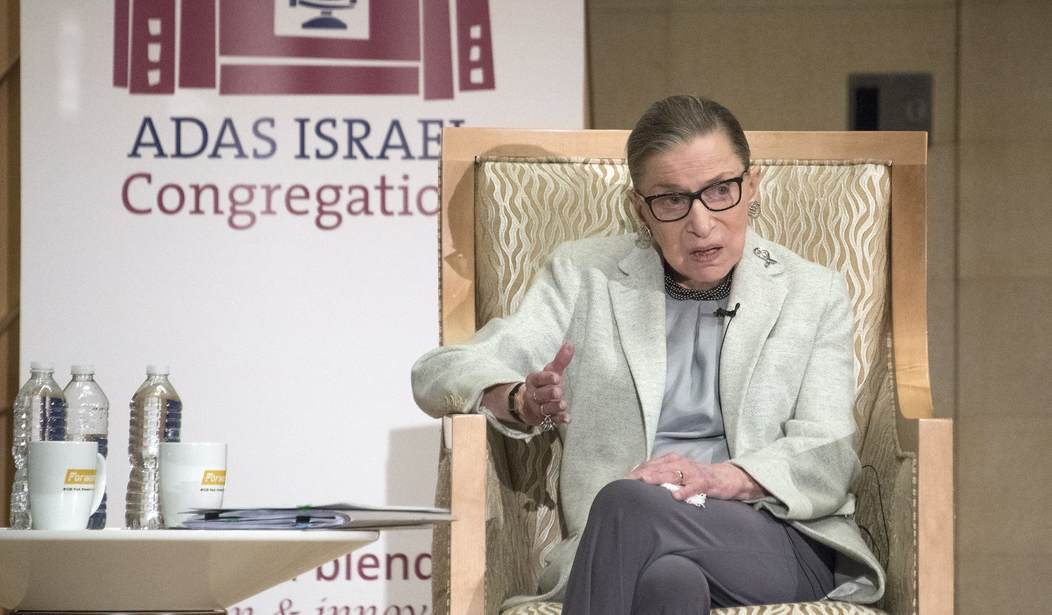WASHINGTON – Supreme Court Justice Ruth Bader Ginsburg said she would like to see language added to the U.S. Constitution that guarantees “equal rights” for women.
Ginsburg’s comments were made in the context of reviving the Equal Rights Amendment given the influence of the “#MeToo” movement against sexual harassment and abuse.
“I would like [my granddaughters] to see in the Constitution a statement that men and women are persons of equal citizenship stature. I’d like to see that as a basic tenet of our system. Every constitution in the world, written since the year 1950, has an equivalent of an Equal Rights Amendment, a statement that men and women are persons equal in dignity and in rights. Our Constitution starts out, ‘we, the people, in order to form a more perfect union.’ And I think part of becoming – a very large part of becoming a more perfect union is to embrace more and more people,” Ginsburg said during an Adas Israel Congregation event earlier this month.
“Think of how it was in the beginning, in 1787, when the original Constitution was written,” she added. “So who are ‘we the people’? I would not have been there. Half the population would not have been there. The people who were held in human bondage, Native Americans were not part of the political constituency. But over, now, well, over two centuries, I think the genius of the Constitution is that this concept of we the people has become ever-more embracing. And so I would like to see an Equal Rights Amendment in our Constitution, and I’m still hopeful there’s some movement in Congress to revive the amendment.”
The moderator of the discussion, Jane Eisner, editor-in-chief of Forward, said she found a study from 2015 that showed Ginsburg and Supreme Court Justices Elena Kagan and Sonia Sotomayor were interrupted three times more than their male colleagues during proceedings.
“I think, maybe, the academic study is accurate if you look at the transcripts. I’m glad that report came out because I think things will change. Men will be more conscious that this is happening. On the other side, I can’t say that we have been so good about not interrupting,” Ginsburg noted. “When Justice Scalia was alive, it was a competition between Sotomayor and Scalia to see who could ask the most questions during an oral argument.”
Ginsburg was asked if there is ever a moment when she thinks justices should respond to current events and political developments in the nation.
“The judiciary is a reactive branch of government. It doesn’t generate the controversies that come before it. It has no agenda. It’s reactive to what is out there,” she said. “A very fine federal judge, Judge [Irving] Goldberg from the Fifth Circuit, once said the courts don’t make conflagrations but they do their best to put them out. If people ask me about an opinion, all I can say is ‘read it.’ Judges do depend on the bar to explain the importance of an independent judiciary. It is our nation’s hallmark and pride, the federal judiciary.”
She also weighed in on the opposition to lifetime appointments for Supreme Court justices. Ginsburg, 84, said many countries have a “compulsory retirement” age for judges but she is “grateful” to the Founding Fathers for “writing into the Constitution that the judges shall hold their office during good behavior.”
Ginsburg plans to continue serving as long as possible.
“I’m just candid and say as long as I can do the job full-steam, I will be here,” she said.









Join the conversation as a VIP Member